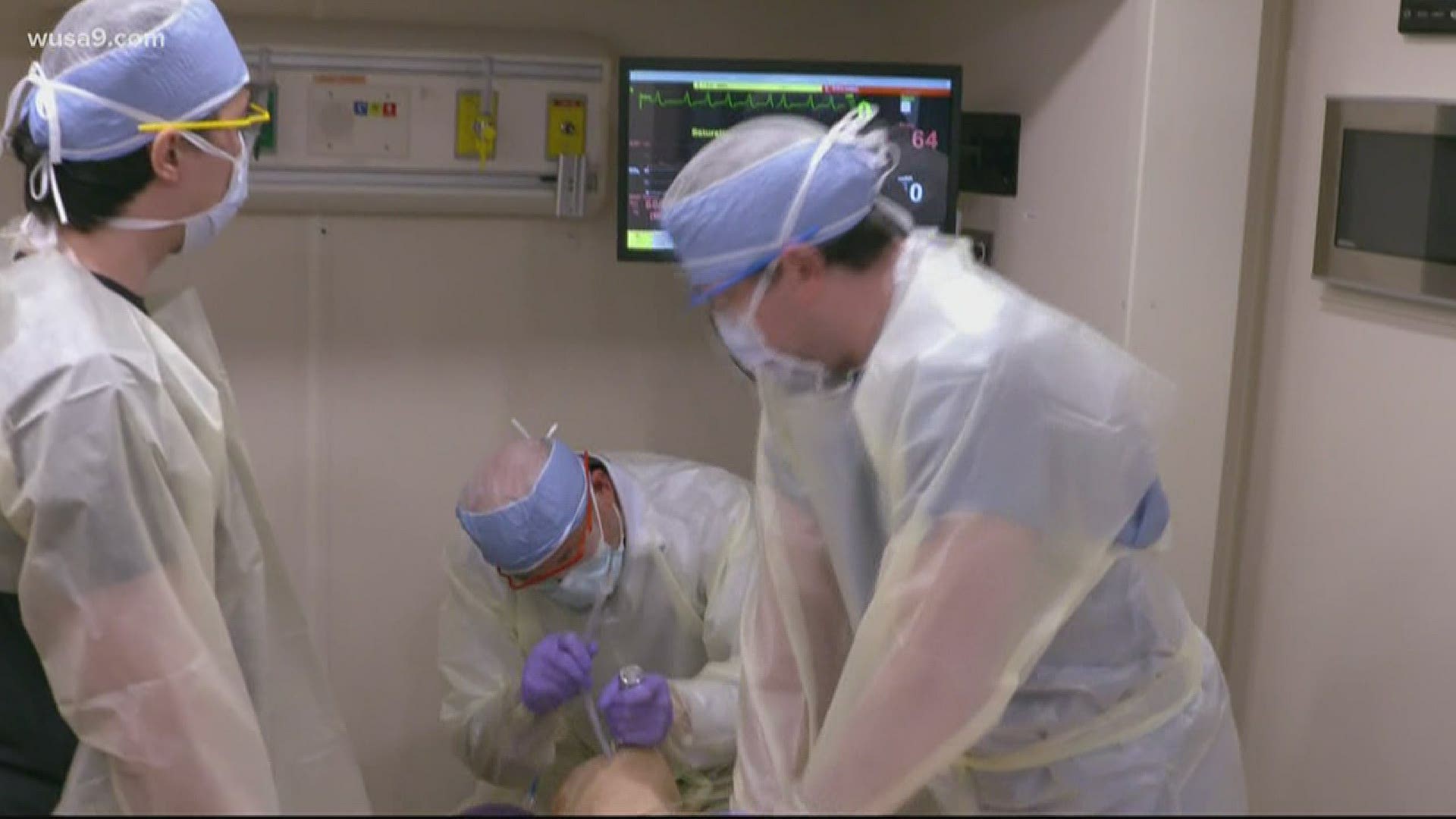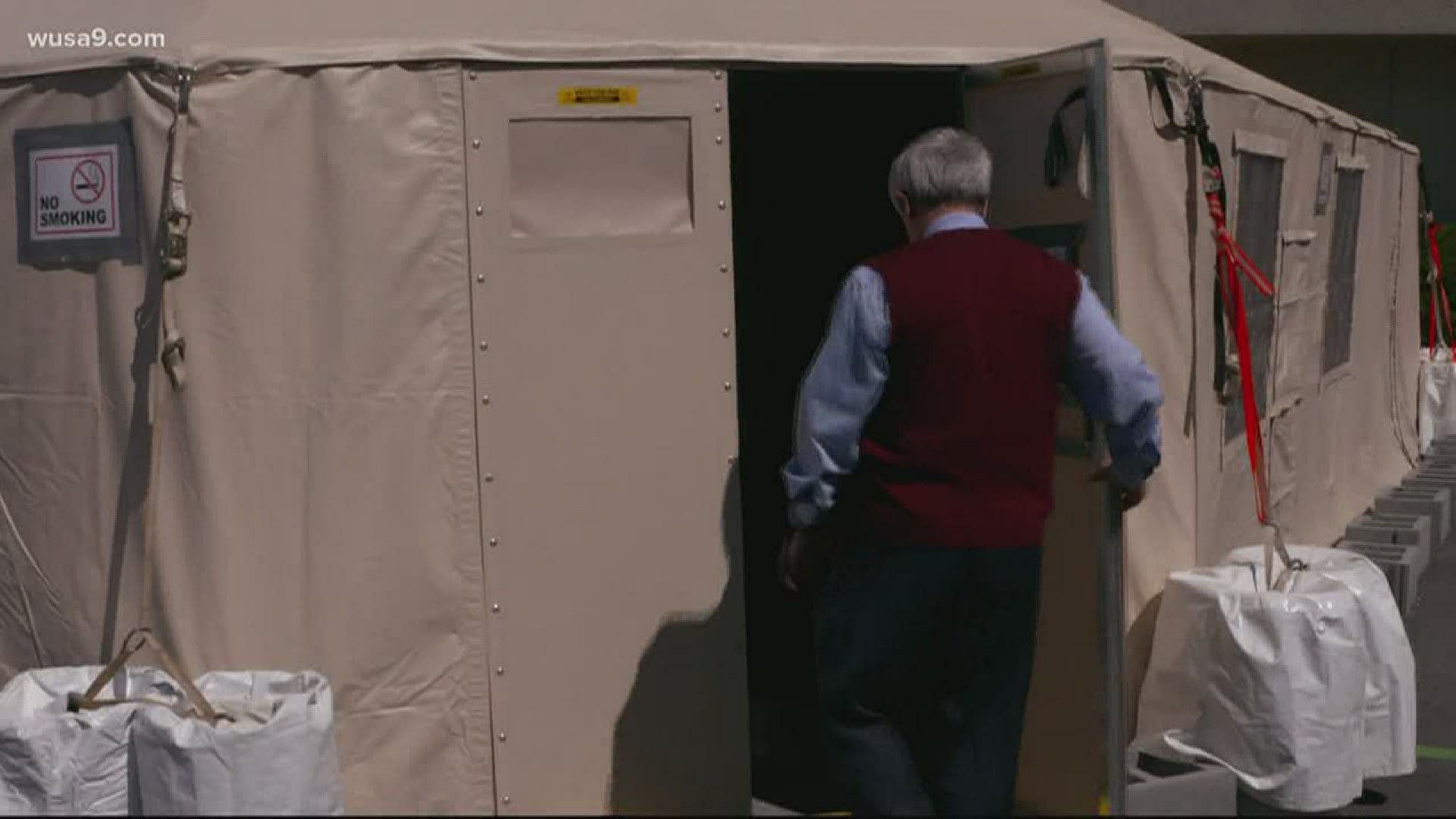WASHINGTON — It’s known affectionately as a 40-foot "Winnebago," a truck with two labs mimicking an intensive care unit, and mannequins specifically designed to have an all-too-real heartbeat.
The mannequins open and close their eyes, with settings that simulate breathing, too. They are the COVID-19 patients found in this mobile ICU boot camp.
The simulation lab is where MedStar Health now retrains emergency physicians, nurses and anesthesiologists, refreshing principles of intensive care so they can step in to treat COVID-19 patients.
"This is all part of our plan to maintain a state of readiness," Dr. John Yosaitis, director of MedStar’s Simulation Training & Education Lab, said. "There’s a possibility that some non-ICU physicians will get pulled back into the ICU to take care of COVID-19 patients."
The goal is to train a new wave of doctors who could relieve health care workers if the region sees a surge in coronavirus cases.
According to the boot camp program managers, physicians who practice emergency medicine may be called to meet an elevated need for ICU personnel. But they may not be as familiar with the new technology now in use since their residencies.
"My thoughts about helping colleagues on the front lines: it’s not even a question about whether I should do this," Dr. Steve Luck, director of ambulatory anesthesia at MedStar, said. "I’m an anesthesiologist, and I feel I have a duty to help my colleagues who may be under stress in the ICU."
The mobile training lab has been in operation since 2016. More than 2,600 health care workers have honed their skills because of the ICU boot camp, according to MedStar figures.


